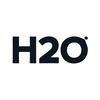H2O Hospitality secures $30M Series C to expedite hotel digital transformation

The pandemic has triggered more demand for contactless and staff-less operations in the hospitality sector, and now H2O Hospitality, the unmanned hotel management company, has closed a $30 million round on the back of that boost. The South Korea and Japan-based startup automates front and backend processes including accommodation reservation, room management and front desk duties, and it will be using the funds to continue expanding its business.
The Series C round (equivalent to about 34 billion won) is being led by Kakao Investment and Korea Development Bank (KDB), Gorilla Private Equity, Intervest and NICE Investment also participated. With Southeast Asia’s joint fund, Kejora-Intervest Growth Fund also joined in the round, it is a sign that H2O Hospitality will be focusing specifically on the Southeast Asian Market. H2O Hospitality has raised $7 million Series B round from Samsung Ventures, Stonebridge Ventures, IMM Investment and Shinhan Capital in February 2020.
H2O Hospitality will expand its business further by adding various types of accommodations in South Korea and Japan in 2021 and 2022 and plans to enter Singapore and Indonesia in 4Q in 2022 in line with its Southeast Asia penetration strategy, according to H2O Hospitality co-founder and CEO John Lee.
“H2O Hospitality is currently speaking with several global hotel chain companies to partner with their digital transformation and operation outside of Korea and Japan,” Lee told TechCrunch.
H2O will invest in R&D to advance its customer channel solutions and contactless check-in systems depending on customer needs of each country in Asia, Lee continued.
“We need optimal system development and customization for each accommodation and situation to lead successful hotel digital transformation even after COVID-19,” Lee said in an email interview.
H2O Hospitality was founded in South Korea 2015 by CEO John Lee, and it has been on something of an acquisition-expansion spree. It entered Japan in 2017, for example, by acquiring several Japanese hospitality management companies. In 2021, H2O acquired two South Korean companies such as the contactless hotel solution company, ImGATE, and a local creator startup, Replace, in order to enhance its technology and ESG competence.
These days, the company operates approximately 7,500 accommodations including hotels, ryokans and guest houses, in Tokyo, Osaka, Seoul, Busan, and Bangkok.
H2O Hospitality’s Information and Communications Technology (ICT)-based hotel management system, which enables hotel management to automate and digitize, includes the Channel Management System (CMS), Property Management System (PMS), Room Management System (RMS), and Facility Management System (FMS).
Its integrated hotel management system can reduce hotel management’s fixed operating costs by 50%, while increasing revenue by as much as 20%, according to its statement.
“COVID-19 hit the hospitality industry the most and most of the hotels wanted to decrease their fixed cost level, but it was impossible with their current operational flow,” Lee continued, “They had to go through digital transformation”.
When asked how the pandemic affected H2O as COVID-19 still freezes most of the tourism industry, Lee said H2O’s revenue has been increased by as much as 30% before the pandemic, but that percentage has been dropped to 5-15% post COVID-19. Revenue drivers these days are based around tools it’s built to improve the efficiency of its customers. They include its automated dynamic pricing (ADR) tool and diverse sales channels like online and offline travel agencies in domestic and overseas, he said.
Lee also pointed out that H2O has been onboarding a lot of properties and that has also contributed to H2O’s revenue growth in the last 18 months. H2O was the only company in Asia, he claims, and many property owners have started to get onboard since August 2020, he explained.
“Every single hotel that we onboarded during the pandemic turned around their profits & losses statements and started to recover their financial loss,” Lee said.
There are currently about 16.4 million hotel rooms in the world that generate $570 billion a year, according to Lee. H2O believes that it can digitize all the lodging accommodations in the world as the company’s main goal is not building a hotel brand but allowing hotel owners to operate their properties with better operation, he said.
Lee explained that the current hotel operation process looks a lot like that of “2G phones”, that was at a stage before turning to smartphones, and H2O is turning the overall hotel operation into a “smartphone”.
“This is a very natural transition for the (hospitality) industry as it was also natural for the cellphone users to transit from 2G phone to smartphone,” Lee said.
Unfortunately, the cross-border inbound tourism market has still been stopped for both Korea and Japan even though each domestic market is still pumping demand for the market, Lee mentioned.
“We believe the inbound tourism market will recover within a year as the vaccinations grow for both countries (Korea and Japan),” Lee said.
Managing Director at Kejora-Intervest Growth Fund Jun-seok Kang told TechCrunch: “We knew this new wave for hotel digital transformation trend was coming even before the pandemic; however, COVID-19 definitely expedited the transition period, and we believe H2O will thrive in the transforming hotel market.”
